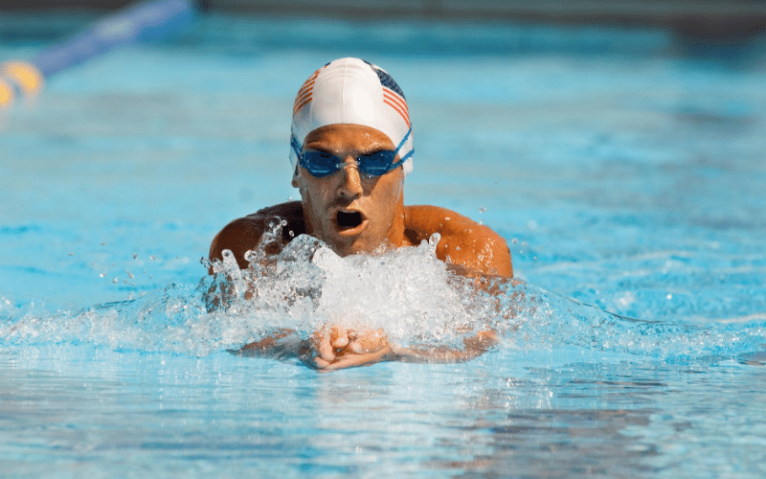Famous athletes in recovery are examples of perseverance and victory over addiction. Whether you’re in the big leagues or your high school’s football team, playing sports often leads to injuries. Broken bones, sprains, and head injuries are common for athletes at all levels of play. Frequently, athletes receive strong painkillers to treat these injuries.
No specific population is more likely to receive prescriptions for potent opioids than athletes. A seven-month Sport’s Illustrated investigation uncovered rampant prescription opioid and heroin abuse in almost all sports.
This investigation concluded that opioid overdoses have occurred across the country in sports like baseball, basketball, football, golf, gymnastics, hockey, lacrosse, soccer, softball, swimming, tennis, volleyball, and wrestling. Tragically, opiate use can lead to overdoses and death.
Famous Athletes in Recovery
Super athletes are not exempt from the dangers of drug and alcohol abuse. The pressure to achieve perfection, the toll of performing always at their best, can easily bring them down. With easy access to prescription drugs and even illicit substances, many athletes find themselves struggling with drug addiction or alcoholism.
These are some of the most prominent athletes who have battled addiction and are now in recovery:
- Michael Phelps used marijuana.
- Dock Ellis struggled with LSD.
- Darryl Strawberry suffered from cocaine and alcohol abuse.
- Diego Maradona struggled with cocaine addiction.
- Andre Agassi used crystal meth.
- Josh Hamilton struggled with drugs and alcohol.
- Ricky Williams struggles with marijuana addiction.
- Jon Daly felt under the influence of alcohol.
- Todd Marinovic struggled with cocaine, alcohol, amphetamines, and LSD.
- Lawrence Taylor confessed to struggling with coke in his early days.
Tragically, other famous athletes have died from addiction. Athletes like David Waymer and Don Rogers, both professional football players, and wrestler Chyna, have lost their battle with drugs. Today, many of these athletes use their voices and platforms to talk about the dangers of drugs and alcohol addiction.
Statistics on Athletes and Addiction
According to research from the University of Michigan’s Monitoring the Future Survey, around 11% of senior-level high school athletes have used painkillers for nonmedical purposes. With that many students abusing painkillers, it’s no wonder there have been so many overdoses.
Equally alarming is research from Philip Todd Veliz, a scientist from the University of Michigan. He conducted a study on over 1,400 young athletes. He found that adolescent males playing sports are two times more likely to be prescribed painkillers and four times more likely to misuse/abuse them than non-athletes of the same age.
The Realities of Athletes in Recovery
There’s no denying that doctors continue to overprescribe opioids. Many addicts are calling for more alternative painkiller solutions, including the use of marijuana or cannabidiol. However, whether or not these changes will happen takes time. Athletes in recovery can be examples of how sobriety is possible for anyone.
Things like prescription monitoring services are cracking down on opiate prescriptions across the country. On the other hand, increasing access to addiction treatment is a bit harder to implement.
Some significant steps, like mental health and substance abuse insurance parity, have been made in the past few years, but there’s still a long way to go. Until then, it’s essential to be aware of the risks of opiates. If you are addicted, it’s vital to seek help immediately.
Finding Addiction Help
Tailoring a treatment plan to a client’s strengths and significant areas of concern offers the best chance at success, which is our philosophy here at Lighthouse Recovery Institute. We begin each person’s journey by creating a treatment plan that will best meet their needs and help them reach their goals.
Building a connection between a client and a therapist can be challenging, but the payoffs are well worth the work it takes to achieve. That’s the importance of choosing a treatment facility that offers comprehensive therapies that promote comprehensive healing that includes:
- Medical detox and medication-assisted treatment.
- Different styles of therapy.
- Options for alternative therapies.
- Aftercare support programs.
No matter what you’ve been through or what type of substance use disorder you struggle with, recovery is possible. Lighthouse Recovery Institute offers several approaches and all different kinds of therapies to address the real, underlying causes of the conditions. Look no further for help than right here. We are ready to be with you every step of the way toward recovery.









